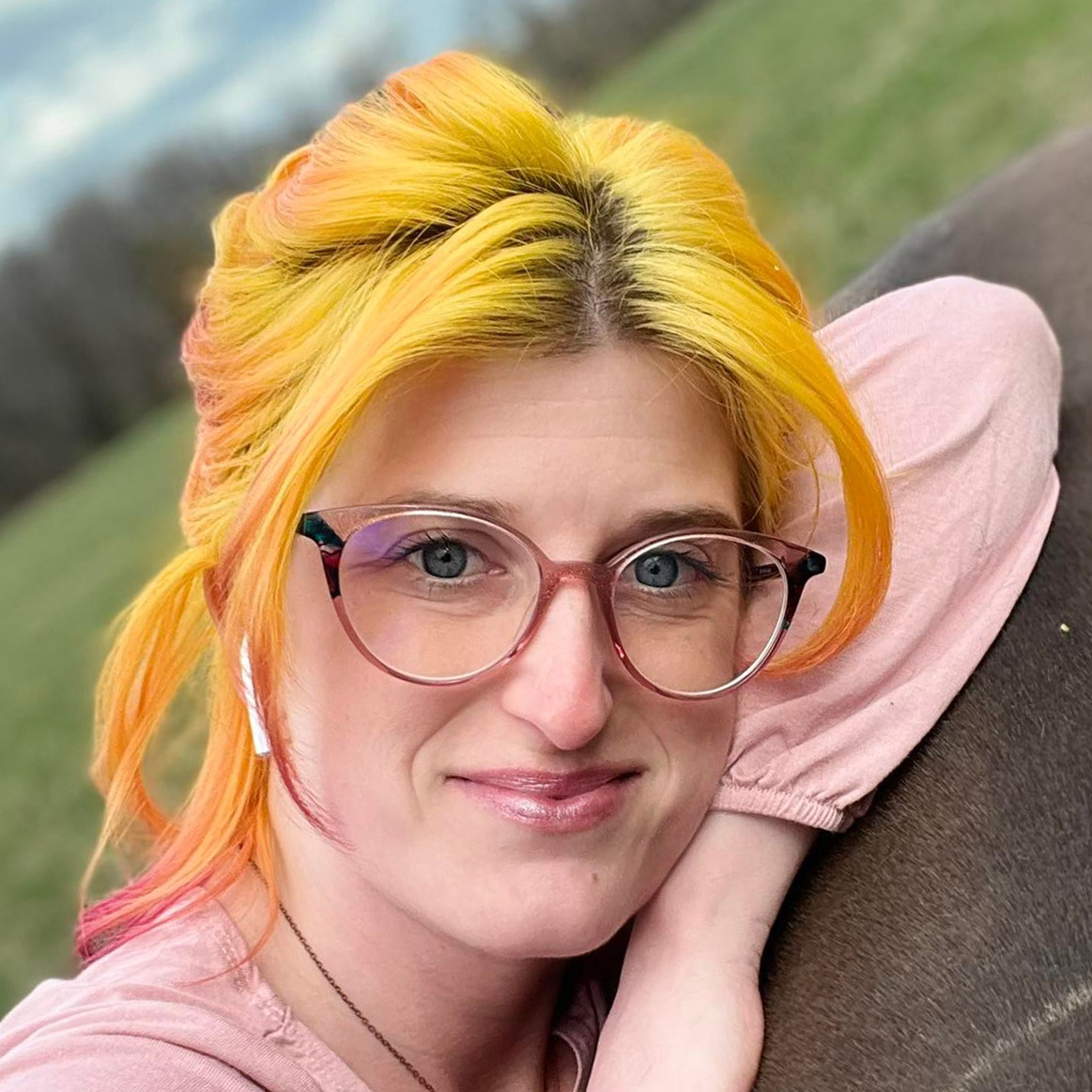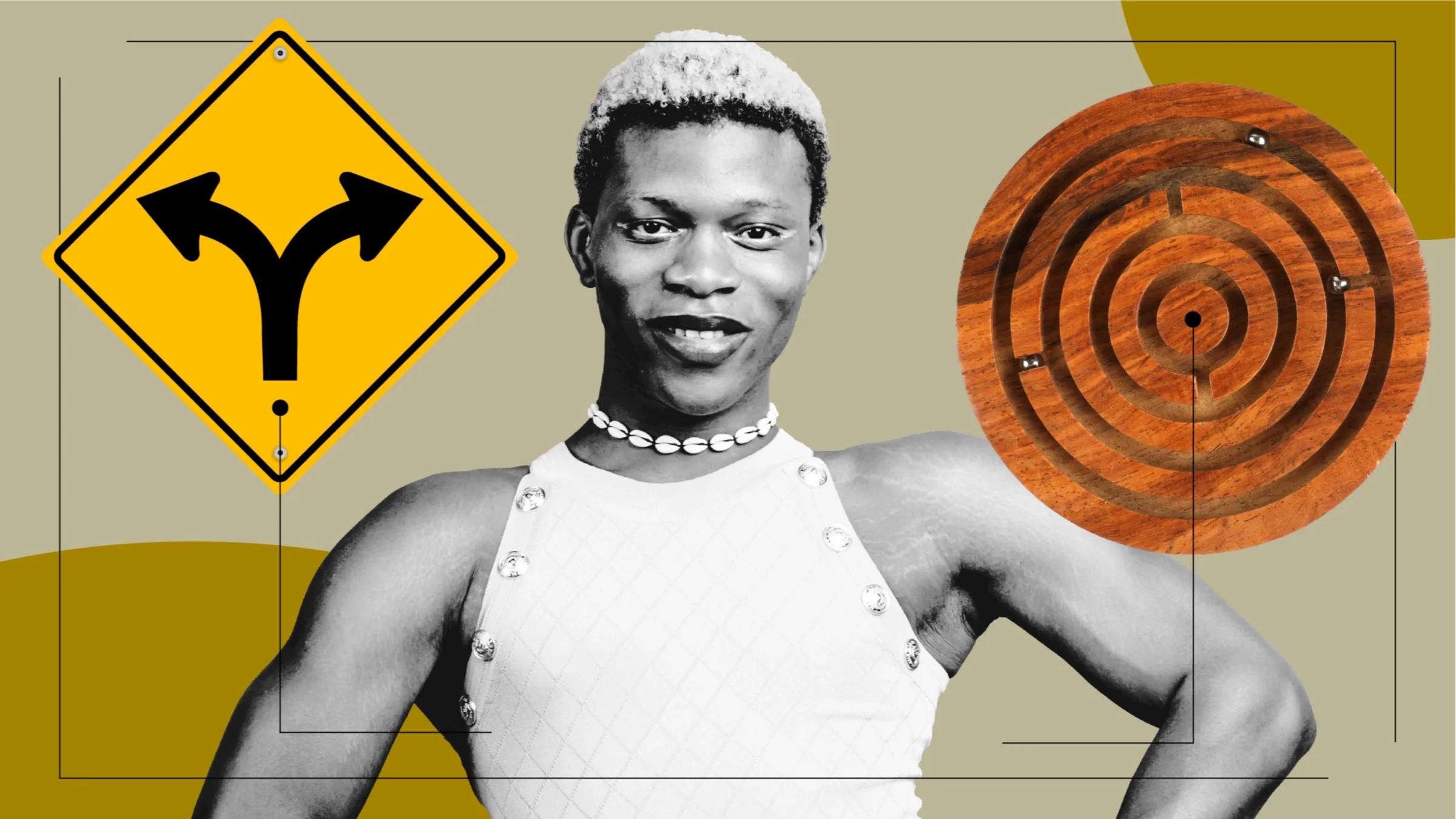Key takeaways:
Cultural competence is about interacting with and accepting people from different cultures.
Finding a culturally competent therapist can be validating and therapeutic.
When providers don’t understand different cultures, clients may feel ignored, unappreciated, or misunderstood.
Therapy can be easier and more helpful when your therapist understands and relates to you. When it comes to cultural competence, it can make or break a therapeutic match.
Cultural competence does not mean that someone understands everything about every culture. It’s more about understanding that your own beliefs and values may be different from those of other cultures. Being open to learning from others means recognizing that you don't know everything.
Below, three people share with GoodRx their experiences searching for the right therapist.
Search and compare options
Someone who understands you
Yvonne Jackson, a 44-year-old Black woman from North Carolina, works in the field of diversity, equity, and inclusion (DEI). Cultural competence is a subject she is passionate about.
She says that bias, discrimination, and inequality “can take a toll on anyone, especially those working in the DEI space.”
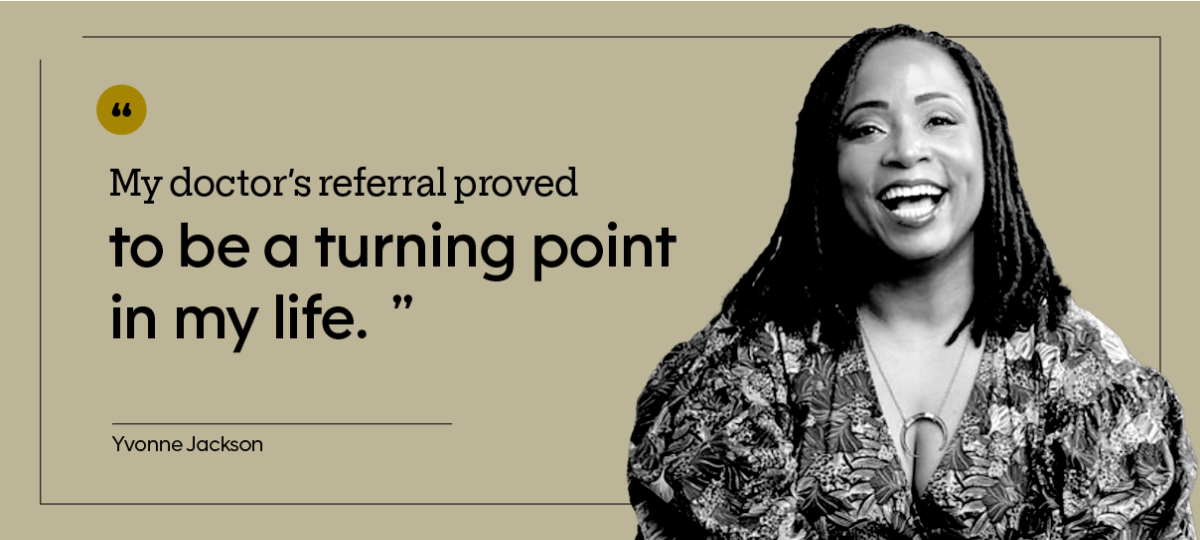
Earlier in her career, Yvonne began to experience what she refers to as “diversity fatigue.” She experienced physical and mental health problems and had to take time off from work.
“I’m a single mother by choice,” she says. “It was so important for me to make sure that my mental health was taken care of because I have a toddler, and I’m only one person. I wanted to ensure that she had the role model she needed.”
Yvonne wanted a therapist to help her, but she didn’t know where to start.
Finding a provider through her insurance company proved difficult and frustrating. Many of the lists she was provided were outdated, or providers were not accepting new clients.
Read more like this
Explore these related articles, suggested for readers like you.
Yvonne found a Black female primary care doctor through a fee-based service provided by her employer. While Yvonne was being treated for her physical health issues, the doctor asked if she would like a referral to a Black female therapist.
“I’ve never had a Black woman doctor ever. So that was already nice,” Yvonne says. “And then for her to say, ‘Would you consider going to a Black therapist?’ I was pleasantly surprised by her awareness and willingness to support my cultural needs without me even asking.”
In past therapy experiences, Yvonne says, she felt like she spent the first few sessions focused on assisting providers with their own cultural literacy and competence. This time around, she didn’t need to.
“My doctor’s referral proved to be a turning point in my life,” Yvonne says. “Finding a culturally competent therapist who shared my background and understood the details of therapy and mental health as a Black woman allowed me to immediately delve into my issues, fears, and challenges. Her competency accelerated my healing process.”
After taking the time to focus on her mental health, Yvonne is back to thriving in her career.
“I can confidently say that my mental health has vastly improved,” she says. “It was this transformation that empowered me to leave my longtime career in tech and launch my own successful DEI business.”
No fear of judgment
John Paul Ponce is 31 and lives in Austin, Texas. In addition to working for a virtual mental health platform, John Paul is also a drag queen.
For John Paul, finding a therapist who was knowledgeable and supportive of the LGBTQIA+ community was a must.
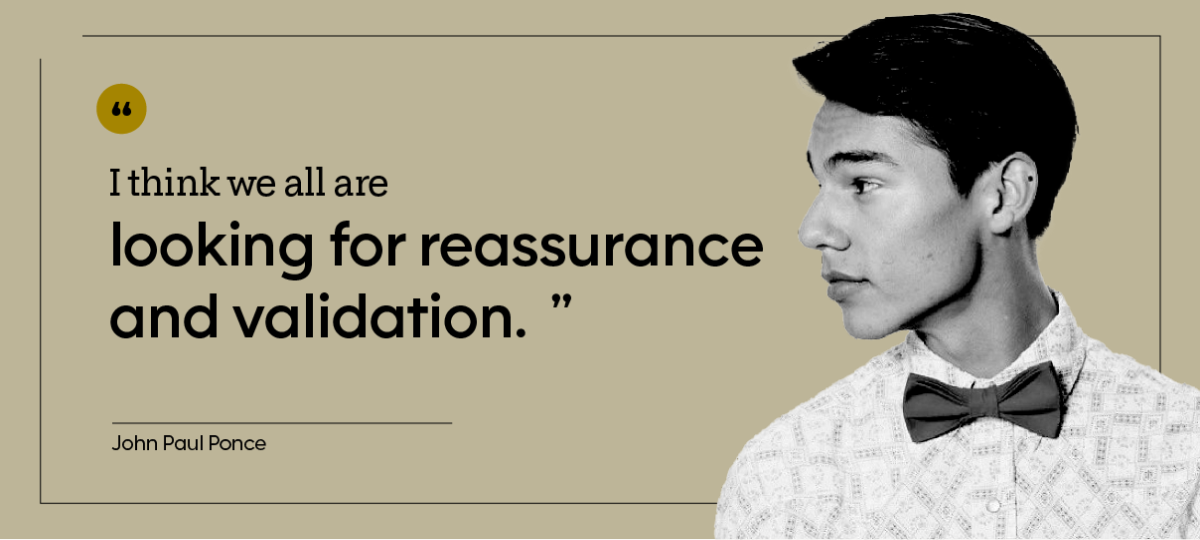
“I wanted to find a therapist who was a part of this community, as well,” he says. “Right now, this community is going through a lot. I myself am a drag queen. It’s scary to feel like what I love to do, and how I express myself, might soon be illegal, or I could be thrown in jail or fined for it. I just really wanted to speak with somebody who was knowledgeable and who could relate to what I am going through.”
Through a benefit his employer offered, John Paul found an LGBTQIA+ therapist he could see online from home.
John Paul’s past experiences with therapy had not been great. He came out as gay when he was in eighth grade. While he grew up in a devout Catholic home, his parents have always been loving and supportive of who he is. Around the same time he came out, he started therapy.
“I went to a therapist who was a straight male, and I felt like I was very judged by him,” John Paul says. “He was also Catholic. I didn’t feel like he could relate to me. I was scared to talk to him. I thought, ‘What does a 65-year-old straight man who is religious have in common with a young boy who just came out and is struggling to find his community?’ I only went a few times before I told my parents that I just didn’t want to go back because I didn’t feel comfortable.”
This time around, even with the help of a virtual platform that filtered providers, it took John Paul a few tries to find the right fit.
When he did, he says, it felt validating.
“What someone like me needs to hear is that it’s going to be OK. You are made the way that you are, and no one faults you for that,” he says. “I think we all are looking for reassurance and validation. And that first provider just simply couldn’t do it for me.”
Understanding your unique identity
Priscilla Chin is a 30-year-old psychotherapist and psychoanalyst in New York. She says she values cultural competence both in her personal and professional life.
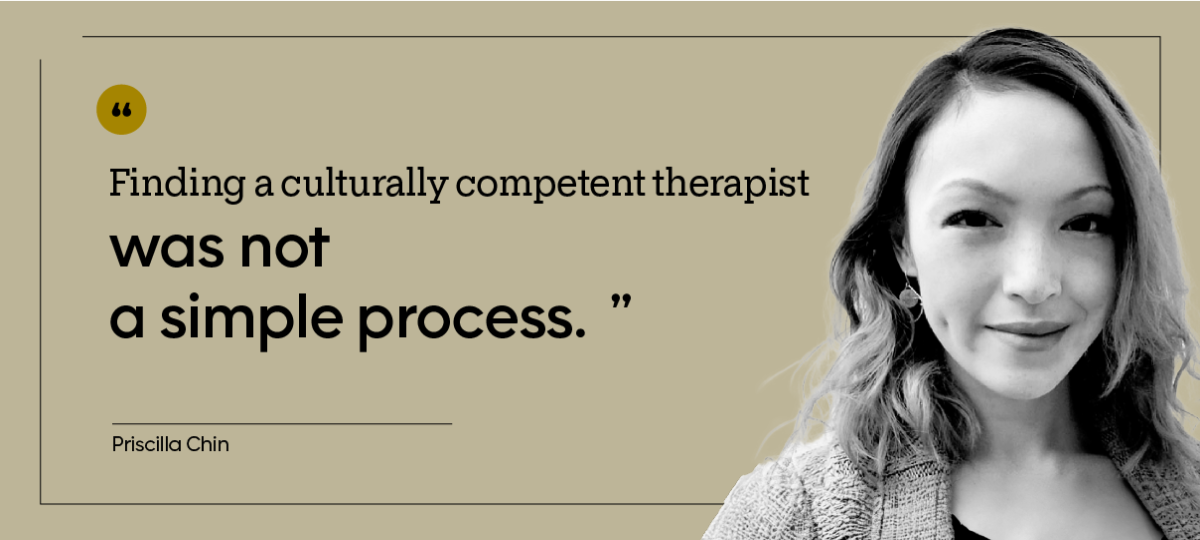
Personally, she wanted a therapist who could understand her experiences as a Chinese American from an immigrant family.
“Finding a culturally competent therapist was not a simple process,” Priscilla says. “It took many phone consultations and multiple intake sessions with different therapists. I needed to really get a feel for our fit and for how culturally responsive they are.”
While it took time, she says it was worth it.
“I had a difficult experience with a therapist who was very competent and helpful in many ways but unfortunately wasn’t able to help me when I needed to work through my difficulties in balancing my Chinese culture with the predominant Western individualistic culture I grew up in,” she says. “I needed my therapist to provide me with the space to talk through my complex and nuanced feelings and experiences.”
Once Priscilla found a therapist who understood her culture, it made a big difference.
“Having a culturally competent therapist has been so crucial to feeling more grounded in my identity,” she says. “I have the space to talk through and process my complex and intersectional identities. I have been able to develop a more coherent sense of myself.”
What does the doctor say?

Patricia Pinto-Garcia, MD, MPH
Medical Editor
Therapy can provide people with powerful tools that help them live as their authentic and best selves. But therapy doesn’t provide instantaneous results — and it’s not meant to. People typically engage with therapy for years or even decades, sometimes continuously and sometimes off and on, depending on what’s happening in their lives.
Finding the right therapist is so important, because when you connect with a therapist, therapy works better. And you’re more likely to continue engaging with therapy if you connect with your therapist. As these stories show, a culturally competent therapist can make all the difference. A culturally competent therapist can help you meet your short- and long-term goals and provide validation and reassurance that you can trust. Healthcare providers have been championing culturally competent therapy for decades. And as more people are taking cultural competence into consideration when finding the right therapeutic match, more research is becoming available on culturally competent therapy.
It can take time to find the right therapist. And it’s OK to interview multiple therapists before starting therapy or work with multiple therapists until you find the right one. Right now, it can be hard to find any mental health provider at all, since there’s such a high demand for mental health services. But it’s important to keep trying. Even if your first therapist (or second or third) isn’t the right fit for you, you may still find that some aspects of therapy are helpful to you as you continue your journey. As more mental health providers receive training in culturally competent mental health care, it will become easier to find therapists who are not just aware of issues but also understand how to address them and factor them into therapy, as well.

Why trust our experts?
